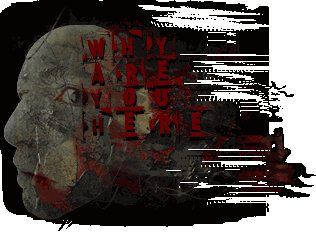

 |
 |
"I'm not disturbing the peace. I'm disturbing the war." -Ammon Hennacy, US Labor leader
|
ACTIVISM |
 |
|
A lot of people think that activists are a strange and frightening bunch. (No doubt some of us are.) But the root of activism is action. The basic meaning of activism is to act, take action, to achieve a particular result, usually a political or social one. Any activity which works towards your political or social goal can be considered activism. Usually, we picture people with signs protesting in front of some government building. That's just one kind of activism. But simply sharing your opinion with another person, especially along with relevant facts backing up your opinion, can also be considered activism. Having the courage to disagree is an act - activism. There are numerous ways to achieve nearly any goal, and nonviolence is no exception. Every little bit counts. You don't have to do everything; just do something. If you silently oppose the U.S. "War on Terrorism" (or any war), your silence will be interpreted as support by those who make war. And your silence will be interpreted as agreement by those civilians who do support the government's war. Your silence will be interpreted as complicity by those who oppose it. If you oppose this war, or any war, say so. How you choose to say it is up to you. Just make sure you say it somehow. OPEN YOUR MOUTH When people are spouting pro-war, pro-oppression, pro-violence rhetoric, have the gall to open your mouth and disagree with them. This is the most straight-forward kind of activism. You don't have to be a jerk. Just share your opinion and gently educate when appropriate. CLOSE YOUR MOUTH Shut up and take the time to learn about what's going on. Anti-war opinions are great, but informed anti-war opinions are even better. Know what's going on. Learn some history. For a good start, check out some alternative online magazines and articles. SIGN A PETITION If you oppose U.S. military action, please make your opposition known by signing the following petitions: WRITE A LETTER You can write a letter to your country's leader and to the leaders of countries who make war. Let them know that you do not support war or any policies that contribute to social injustice. You can also write a letter to the editor of your local newspaper to make your opinion known. More on writing letters. HOLD A LETTER-WRITING PARTY Gather together a group of like-minded friends, have some snacks, and set a goal of each having at least one letter written to a member of government in a position to affect the change you want to see. Go ahead and address and stamp the envelopes, too. Otherwise the letters may gather dust on someone's dresser for months. WRITE AN ARTICLE If you have a lot to say and you express yourself well, consider writing an opinion piece for publication. Some websites promoting peace and non-violence would be happy to have more material to publish. Your local newspaper will also be interested in op-ed pieces. (Check out the nonviolence links for a start. And please consider submitting it for publication on this website as well.) Alternately, you could also publish your own zine and distribute it either for free or a nominal fee to recoup your copying costs. PUBLISH A NEWSLETTER If you're more savvy than most when it comes to writing and editing, then publishing a regular newsletter might be for you. There are websites out there that can give you tips on how to go about doing this. ORGANIZE A DISCUSSION GROUP Make an open invitation to your community to discuss the issues surrounding war and to come up with nonviolent solutions. Print up a flier, photocopy it, and put it up all over the place. (Libraries, coffee shops, universities, street posts, etc.) This doesn't have to be fancy and you don't have to be an expert. Make it a potluck if you want. It can be as formal or informal as you like. HOLD A RALLY, MARCH, DEMONSTRATION, OR PROTEST If you don't know how to go about doing this, you'll need help. Nobody does this stuff alone. Find like-minded people (preferably those with experience), and work with them. (Universities are always a good source for activist types.) Also, search around on the web for information about organizing. Here are a few:
http://www.mattshepard.org/html/vigil_tips.html ATTEND RALLIES, MARCHES, DEMONSTRATIONS, AND PROTESTS Even if you don't have the time or energy to organize these things yourself, you can at least participate at events that others pain-stakingly organize. It can even be fun. Check out Protest Net to find anti-war events in your area (worldwide). JOIN A SOCIAL JUSTICE ORGANIZATION Groups opposed to violence and oppression may already exist in your area. Seek them out, and if you find them, join them. DONATE MOOLAH If you don't feel comfortable doing any other kind of activism, but you want to be supportive, donate money and/or resources to those groups who are working towards goals that you support. MORE THINGS YOU CAN DO
War Resisters League Actions |
||
 home |
letters |
activism |
about the war |
links
home |
letters |
activism |
about the war |
links

war/peace quotes |
guestbook |
contact
 an Afghan man sits near the graves of his family, who were killed by US-led air strikes on the village of Kadam |

|